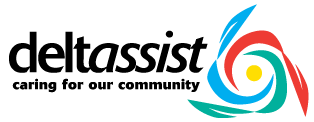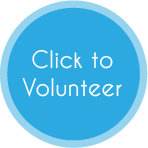Substance Use Blog Series: Youth Resources
July 15, 2020
This week’s post reviews the resources available to Delta youth who have questions about substances, are considering reducing the amount of substances they use, or quitting substances all together.
This post was promised way back in our very first substance use series blog post (that post on resources for adult residents of Delta can still be accessed here). This resource page focuses on youth services that are authorized by BC Health authorities, such as, Fraser Health or Vancouver Coastal Health. There may be additional private or otherwise funded resources beyond what is mentioned here.
We also want to mention that while some sources suggest that youth substance use in the USA is on the rise, the latest BC-wide adolescent health survey report (by the McCreary Centre Society in 2018) shows that youth in BC are waiting longer to use substances and using substances slightly less than youth 10 years ago. View the BC-wide McCreary report here and the South Fraser region specific report here.
There are 4 kinds of resources discussed in this post. Feel free to jump ahead to the resource you are interested in!
- Counselling
- Withdrawal Management (a.k.a. detox)
- Treatment
- Residential
- Non-residential
- Self-Help for Youth
- Substance Use Counselling for Youth
Deltassist Substance Use Services (no age restrictions):
- (604) 594-3455 ask for extension 108 for Substance Use Services
- 9097 120 Street, Delta (Main office)
 Counselling is available for youth with a Delta address who have questions or concerns about their own substance use or about the substance use of friends, family, and loved ones. Counselling is also available to the loved ones, friends, and family members of youths who are using substances.
Counselling is available for youth with a Delta address who have questions or concerns about their own substance use or about the substance use of friends, family, and loved ones. Counselling is also available to the loved ones, friends, and family members of youths who are using substances.
Deltassist has offices in North and South Delta or counsellors can meet youth in secure locations on an outreach basis. Phone and online sessions are also available (sessions were only offered via distance methods during the earlier phases of the Covid-19 outbreak).
PCRS ASTRA Program Outreach Counsellors (for ages 13-18, with some exceptions)
- (604) 836-6273
- sjohnston@pcrs.ca
- https://pcrs.ca/our-services/astra/
ASTRA outreach counsellors meet with youth in the community, wherever the youth feels comfortable. Outreach counsellors can help youth plan to reach their substance use goals, make referrals, and help youth fill out applications for substance use treatment programs.
Fraser Health Youth Concurrent Disorders Counsellors:
- Referrals are made by Child and Youth Mental Health (CYMH)
- CYMH North Delta Office (604) 501-3237
- CYMH South Delta Office (604) 940-7900
If a youth is diagnosed with a mental health concern and also has problems related to substance use, they may be referred to Fraser Health Youth Concurrent Disorders teams. Referrals must come through psychiatrists at Child and Youth Mental Health.
Foundry Programs Online Services:
The Providence Health affiliated Foundry program is now offering virtual (online) drop-in counselling and peer support to BC youth between the ages of 12-24 and their caregivers. Use the following link to go to the webpage on the Foundry website about these services:
- Youth Withdrawal Management:
 If you are wondering, what is withdrawal management? Or, why is it sometimes called detox? Please refer to this earlier post.
If you are wondering, what is withdrawal management? Or, why is it sometimes called detox? Please refer to this earlier post.
There are two local options for Delta youth looking for withdrawal management services.
Creekside Withdrawal Management for Youth (up to age 18, located in Surrey)
- (604) 587-3755 choose option 1 for withdrawal management and then again option 1 for youth
- (778) 241-7597 for the youth intake line
- 13740 – 94A Avenue Surrey, BC
Creekside intake coordinators assess youth needs by phone to determine if the youth is in need of medically supervised withdrawal management. If opioids are the primary substance the youth is withdrawing from, the youth maybe connected to rapid access opioid agonist treatment (which allows the withdrawal symptoms to be safely monitored from home). A youth usually stays at Creekside for 2 – 3 days. There is no smoking or vaping at Creekside, but nicotine replacement options such as gum and patches are available.
Directions Youth Detox (DYD) (up to age 22, located in Vancouver)
Intake is conducted by Vancouver Coastal Health Centralized Addictions Intake Team (CAIT) everyday from 10am to 8pm except on Fridays when they are only open 10am to 5pm.
- (604) 675-2455 for the CAIT intake line, follow the prompts for youth services
- (604) 209-3705 CAIT youth mobile work phone, may also be texted
- (604) 872-4349 DYD can be called directly with questions or when CAIT is closed.
- https://www.directionsyouthservices.ca/get-help (scroll to the detox section)
The DYD website states that “stays are usually a week or so, until we have connected you to the supports you want and need, or if you choose to leave. Detox is a completely voluntary program and you can arrive or leave at any time”. Youth who live in the Vancouver Coastal Health region have priority.
Youth interested in staying at DYD are assessed by an intake coordinator over the phone and if 24-hour medical supervision is required, they will be referred to Creekside. A nurse practitioner visits DYD every business day, however, they cannot offer 24-hour medical support that is required when withdrawing from specific substances.
- Substance use treatment programs available to Delta youth:

These youth programs are voluntary, meaning youth are allowed to leave or quit treatment at any time. Developing a plan in case of early exit is part of the application process.
Different treatment centres have different policies on returning, once a person has left without completing the program.
Some programs require youth to stay at a withdrawal management centre prior to beginning the program.
The length of time commitment for a treatment program ranges from a few weeks to a few months.
Youth referral process: To get into a Fraser Health-authorized residential treatment program or the DEWY day-treatment program, youth need to be referred by a counsellor or outreach worker employed in a Fraser Health-authorized position. In Delta, this includes the counsellors listed above at Deltassist, ASTRA, a clinician at Child and Youth mental Health, or a Youth Concurrent Disorder clinician.
Fraser Health treatment centre application forms can be viewed at the Fraser Health website under the heading, “Referral”. Applications are quite detailed and require some thoughtful consideration. Expect to have a couple of appointments with the person who is helping you fill out the application form.
Residential Treatment Programs
Later this year, a new co-ed residential program for Fraser Health youth ages 13-18, called Traverse House will be opening in Chilliwack. Its opening has been delayed due to Covid-19. Right now, Last Door is the only treatment centre certified by Fraser Health in the Fraser Health region. Last Door serves male-identifying youth ages 14-18. Delta youth are also eligible to attend Peak House in Vancouver. Fraser Health residents may also attend residential treatment in other health authorities, such as Ashanola in the Keremeos (the referral process is the same as Last Door).
Some examples of youth residential treatment programs available for Delta youth to attend, and links to their individual websites are as follows:
Last Door (ages 14 to 18 male identifying youth, New Westminster):
Traverse, Pacific Community Resources (ages 13-18, Chilliwack – opening soon):
Ashanola, Pacific Community Resources (ages 17 to 24, Keremeos):
PEAK House (ages 13-18, Vancouver):
Referrals for Peak House are available here. Youth complete these forms with a supportive service provider, such as a counsellor, but the provider does not need to be affiliated with Fraser Health. Completed referrals are sent to Vancouver Coastal Health’s centralized addiction intake team (CAIT) who can be reached between 10am-8pm (except on Fridays when they are only open 10am-5pm) at (604) 675-2455 – follow the prompts for youth services.
New Westminster House is a private facility (not affiliated with a health authority) for female identifying youth who are 15 and ½ years of age or older:
Non-Residential Treatment
Delta youth between the ages of 13-18 can also attend the DEWY day treatment program run by the Pacific Community Resource Society at their Central City Youth Hub in Surrey (10453 Whalley Blvd).
- Youths choose between two different programming options that run at various times on Tuesday to Friday from 1 p.m. to 5:15pm. Some additional programming occurs outside these times.
- The website states that “the goal of the program is to help youth reduce or abstain from substance use through intensive group counselling and activities”.
- The referral processes is the same as Fraser Health residential treatment programs. To contact a substance use counsellor at Deltassist to make a referral call (604) 594-3455 extension 108 or ask for Substance Use Services
- Other support youth can access themselves:
The Foundry is a youth organization run by Providence Health Care with an excellent website covering information related to substance use. Check it out:
Youth in BC is an online chat service and information line offered by the BC Crisis Centre where youth can connect with a trained support person between the hours of noon and 1:00am. The website is simply:
If you are a youth looking for a workbook about substance use, here are some online options:
HeretoHelp.bc.ca offers a workbook that you can do online while writing down answers to questions on paper:
A youth friendly workbook from the UK (you might want to print this one):
The following video contains several youth talking about their experiences overcoming challenges related to substance use (there are some curse words at the beginning).
~If you need immediate support coping with a crisis while waiting for help, please call the Fraser Health Crisis Line at 604-951-8855 or toll-free 1-877-820-7444. They are open 24/7. ~
Still images from this post are from the open source websites https://unsplash.com/ and https://pixabay.com/










